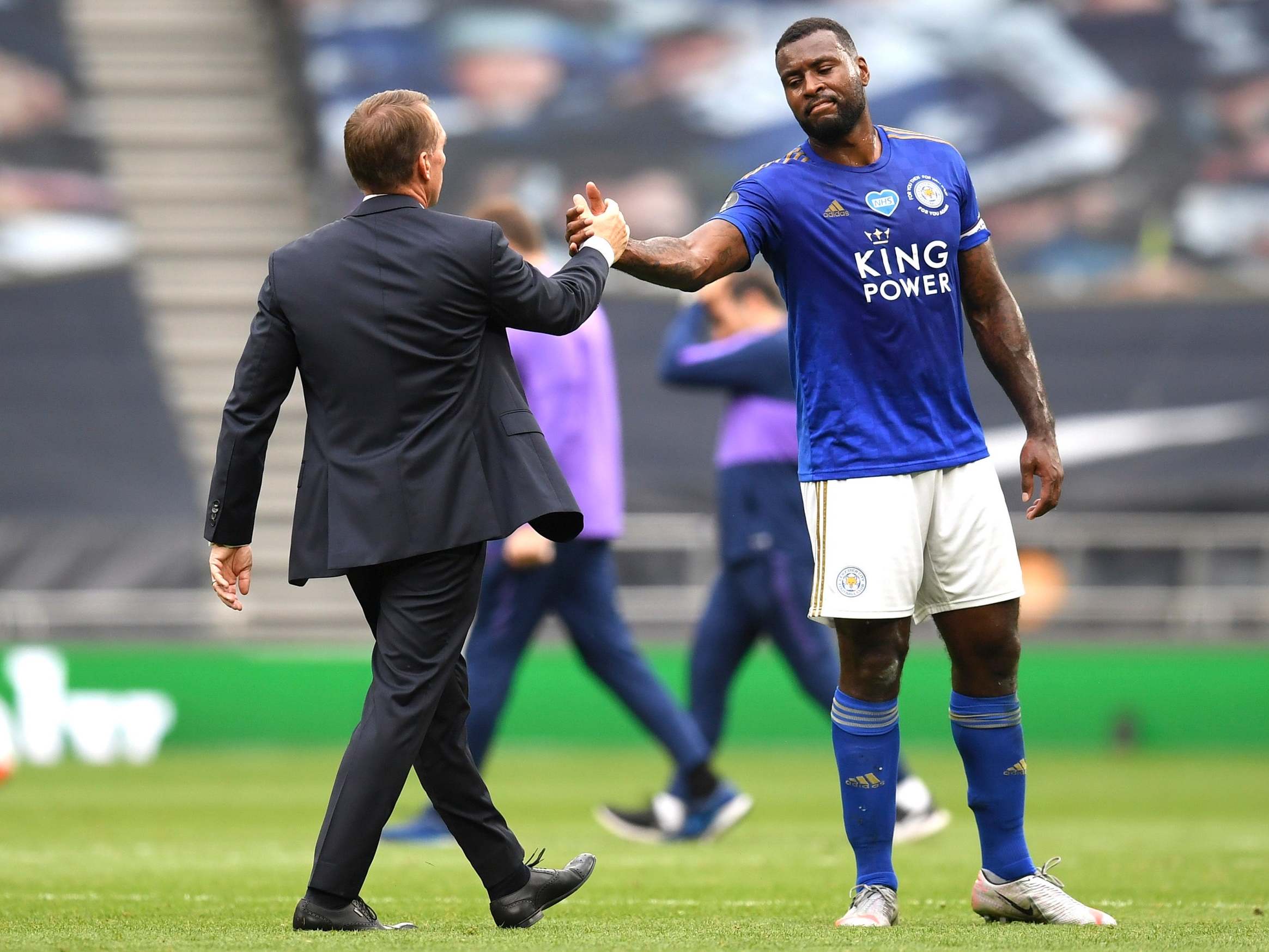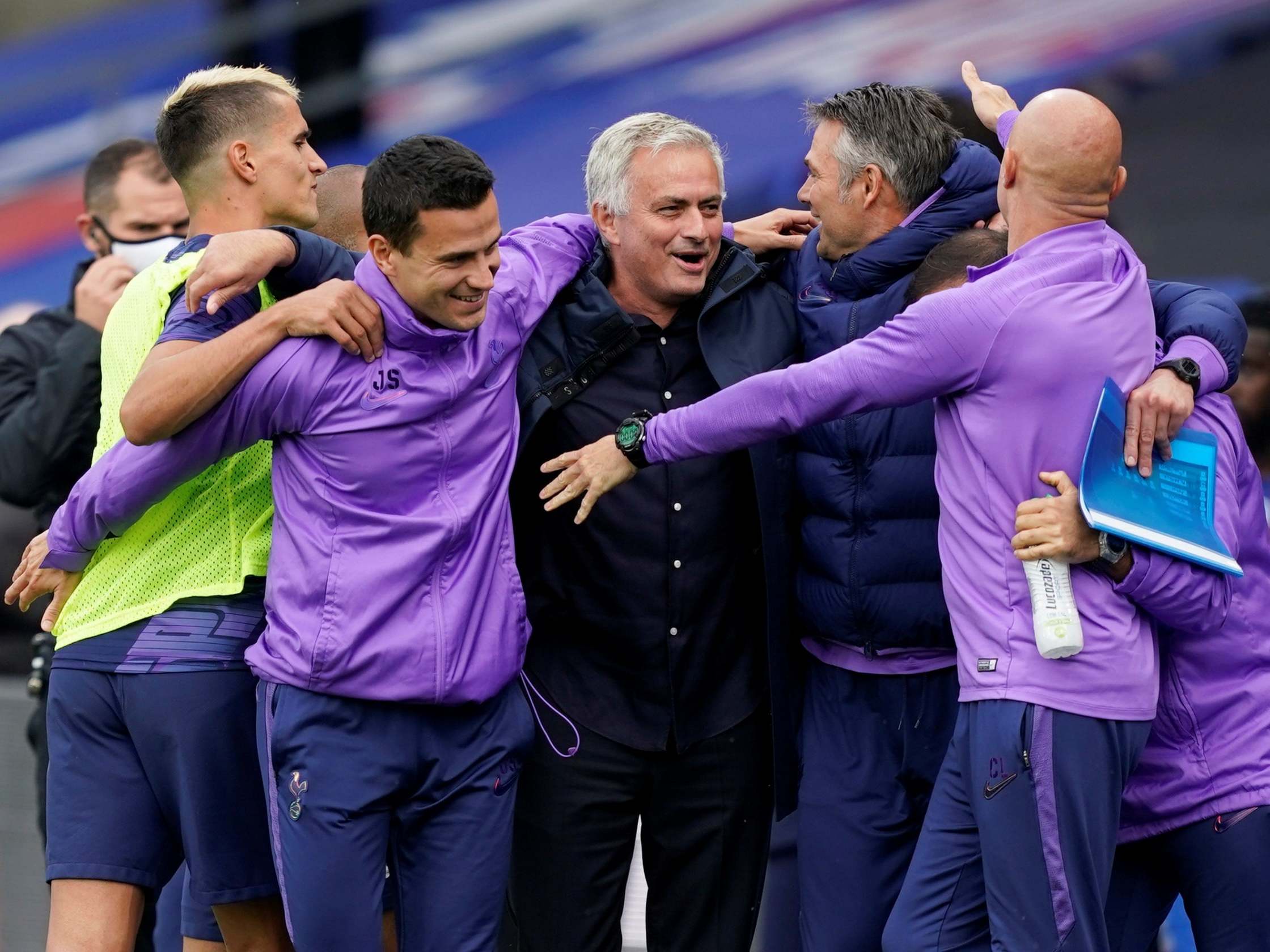The alternative Premier League table: Ranking clubs by their performance against pre-season expectations
The rankings are primarily based on expectations before the season began but naturally incorporate ructions along the way, as well as how each club feels now about the future

Your support helps us to tell the story
From reproductive rights to climate change to Big Tech, The Independent is on the ground when the story is developing. Whether it's investigating the financials of Elon Musk's pro-Trump PAC or producing our latest documentary, 'The A Word', which shines a light on the American women fighting for reproductive rights, we know how important it is to parse out the facts from the messaging.
At such a critical moment in US history, we need reporters on the ground. Your donation allows us to keep sending journalists to speak to both sides of the story.
The Independent is trusted by Americans across the entire political spectrum. And unlike many other quality news outlets, we choose not to lock Americans out of our reporting and analysis with paywalls. We believe quality journalism should be available to everyone, paid for by those who can afford it.
Your support makes all the difference.The Premier League table may not lie, but it doesn’t always tell us the full story as regards who over- or under-performed, and who is happy with their final position. Sixth place for one club can feel very different for another.
With that in mind, we have ranked the alternative league table according to performance. It is primarily based on expectations before the season began but naturally incorporates ructions along the way, as well as how each club feels now about the future.
Here’s how we Premier League clubs rank according to performance versus pre-season expectation (don't agree? Add your comments below):
1. Liverpool: The wait is over, a weight is lifted. The joy of that is incalculable, no matter the debates about records. They got all they wanted.
2. Sheffield United: The story of the season, and the revelation. Everyone expected Sheffield United to go down, but it’s telling that seemed highly unlikely by October. They were flying too high.
3. Chelsea: If the callowness of Frank Lampard’s squad was somewhat overstated, the new confidence in the club isn’t. Chelsea feel they’re in a good place, having claimed a Champions League place when they were expected to finish a fair bit outside.
4. Brighton and Hove Albion: The decision to discard Chris Hughton was painted as a huge risk, but was really just the kind of calculated gamble required to move forward. Under Graham Potter, Brighton comfortably stayed up, but also started to instil a new style, that is much more modern and should keep them moving forward for the future.
5. Manchester United: Perhaps the main example of a club whose final assessment is conditioned by mid-season ructions as much as pre-season expectations. United’s season looks about par when you consider their aims going into it, and that opening-day 4-0 win over Chelsea. It looks great when you consider where they were in January. On the whole, Ole Gunnar Solskjaer has met his objectives.
6. Leicester City: Right now, Leicester season’s feels deflating. They’ll know they should have got into the Champions League. On the whole, though, for Leicester to finish fifth is to over-perform by a considerable degree. The complication with applying that context is the manner in which they dropped off, and the bigger questions that poses about Brendan Rodgers’s reign. It’s right now hard to feel confidence they’ll get back to their early-season form.
7. Wolves: They didn’t break the big six, but maintained remarkable consistency given the slog of a Europa League campaign. How that ends could yet transform perception of this season.

8. Southampton: A season that featured a 9-0 defeat… where that 9-0 defeat will, remarkably, be remembered for the right reasons. Southampton did not sack Ralph Hassenhuttl and were greatly rewarded, as everything now looks so much better under the Austrian.
9. Burnley: Perhaps the most awkward opposition in the Premier League, which has made them such a respectable fixture in mid-table. But that’s also starting to pose awkward questions, not least about Sean Dyche’s future, and how high he can take them. For now, their flight remains so impressive.
10. Crystal Palace: A bit similar to Burnley in how Roy Hodgson continues to defy expectations. Pre-restart performance levels were so respectable. Performances since have begged questions as to how long it can go on for.
11. Manchester City: The strangest of seasons, given it saw some performances of the highest quality, and bizarre drop-offs. So it is with the overall outcome. Ultimately, City gave up their title in the meekest manner. But that disappointment was tempered by the outcome of the CAS case, and may yet be completely outweighed by victory in the Champions League.
12. Aston Villa: They stayed up. That’s pretty much all Villa wanted, and what they needed, given the expenditure. It didn’t always look like they would, particularly going into the campaign.
13. Tottenham Hotspur: It was so long ago that Mauricio Pochettino’s sacking feels a different era, but that was part of this bizarre slog of a campaign. Spurs went in as a Champions League club and recent finalists. They go out as a Europa League team again, with Jose Mourinho having arrested a slide. Whether he can get them back remains so hard to say.

14. Newcastle United: Bigger, almost existential questions surround the club, centred on this controversial Saudi Arabian takeover. For the moment, Steve Bruce performed to par, and had them safely mid-table. But that’s been another problem – the sense they’re not really going anywhere.
15. Arsenal: It’s a similar story across north London. Unai Emery’s sacking feels so long ago we should barely be considering it, but it was one of many factors that made Mikel Arteta’s job much harder. He has the team – and the play – looking better, even if the position still has to follow.
16. Everton: They’ve got the manager they want, but still don’t have the consistency, or the performances. Everton ultimately finished a long way short of where they would have wanted, especially after a 2019 transfer window that fostered a lot of confidence. How Everton will look after Carlo Ancelotti’s first full summer will be instructive.
17. West Ham United: They went into the campaign looking to break Europe, but soon looked like they might fall out of the division altogether. David Moyes brought stability and survival, but also a gloss that covered thwarted ambitions. West Ham should be a much better performing club.
18. Norwich City: They went down, very meekly, but pretty expected to. This was always a bonus season that came ahead of time for Norwich, and they plan to use it to financially bolster the club.
19. Bournemouth: A team, and a time, that had gone stale.
20. Watford: A club that had believed they’d gamed the system. The constant change of managers just eventually ensured their Premier League status changed.
Join our commenting forum
Join thought-provoking conversations, follow other Independent readers and see their replies
Comments